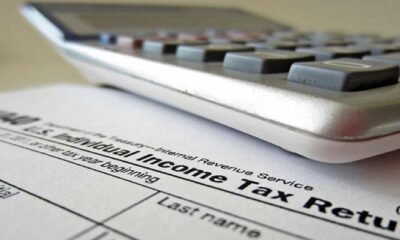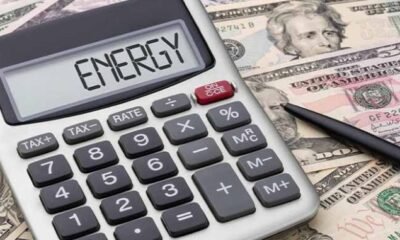Alaska Solar LLC
Rural America’s Small Business Owners Call on Congress to Preserve Clean Energy Tax Credits

WASHINGTON — Small business owners and community leaders from rural regions across the Western United States, including states like Alaska, Colorado, and Montana, gathered on Capitol Hill this week. Their aim? To urge lawmakers to protect clean energy tax credits that are at risk in a major Republican bill currently under consideration in the Senate.
These tax credits, originally established and expanded by the 2022 Inflation Reduction Act, incentivize investments in renewable energy. They have encouraged homeowners, car buyers, and manufacturers to shift away from fossil fuels, aiming to mitigate the impacts of climate change.
Since their introduction, these credits have galvanized hundreds of billions in investment, translating into significant job creation, particularly in states that supported Donald Trump’s reelection. Local business leaders are warning that the elimination of these tax credits will lead to job losses and diminished consumer options.
Chase Christie, director of Alaska Solar LLC, noted that his team installs multiple large-scale solar projects annually in remote Alaskan villages. “Planning and logistics are crucial,” he said, highlighting the seasonal challenges his company faces. Already, he has had to reduce his workforce and pause hiring due to uncertainty surrounding future projects.
Christie recently met with staffers for Alaska’s Republican Senators Lisa Murkowski and Dan Sullivan. In a statement, Sullivan’s office emphasized his support for energy projects that benefit Alaska while balancing tax policy and the federal deficit. Murkowski’s office has yet to respond to inquiries regarding the issue.
As senators negotiate the Republican agenda, which includes a proposed $3.8 trillion tax overhaul, House Republicans are pushing for the swift expiration of these critical clean energy credits. This measure, dubbed the “green new scam” by some, aims to fund tax cuts for individuals and corporations by significantly rolling back energy tax incentives.
The House bill, which passed narrowly last month, aims to terminate the Energy Efficient Home Improvement Tax Credit, impacting homeowners who invest in energy upgrades. Additionally, it accelerates the phase-out of other credits, including the long-standing Clean Electricity Investment Tax Credit, limiting access for future projects.
Critics have raised concerns about the long-term implications of these cuts. The nonpartisan Committee for a Responsible Federal Budget projects that eliminating these credits could save nearly $249 billion over the next decade. Meanwhile, analysts suggest that while the House bill tightens eligibility, it also complicates the tax landscape for clean energy.
In Montana, the weatherization program manager for the Human Resource Development Council, Logan Smith, argues that these credits are vital for low-income residents. “Solar panels ensure that power stays on during harsh winters,” he explained, illustrating the credits’ importance for community resilience.
Ralph Waters, owner of SBS Solar in Missoula, expressed deep concern about potential job losses due to early termination of these credits. He criticized the politicization of renewable energy, stating that practical energy solutions should transcend political divides. “At the end of the day, it’s about accessible, affordable energy,” he asserted.
As the fate of these tax credits hangs in the balance, rural leaders urge lawmakers to consider the broader implications for jobs, community sustainability, and the ongoing transition to clean energy sources.


















